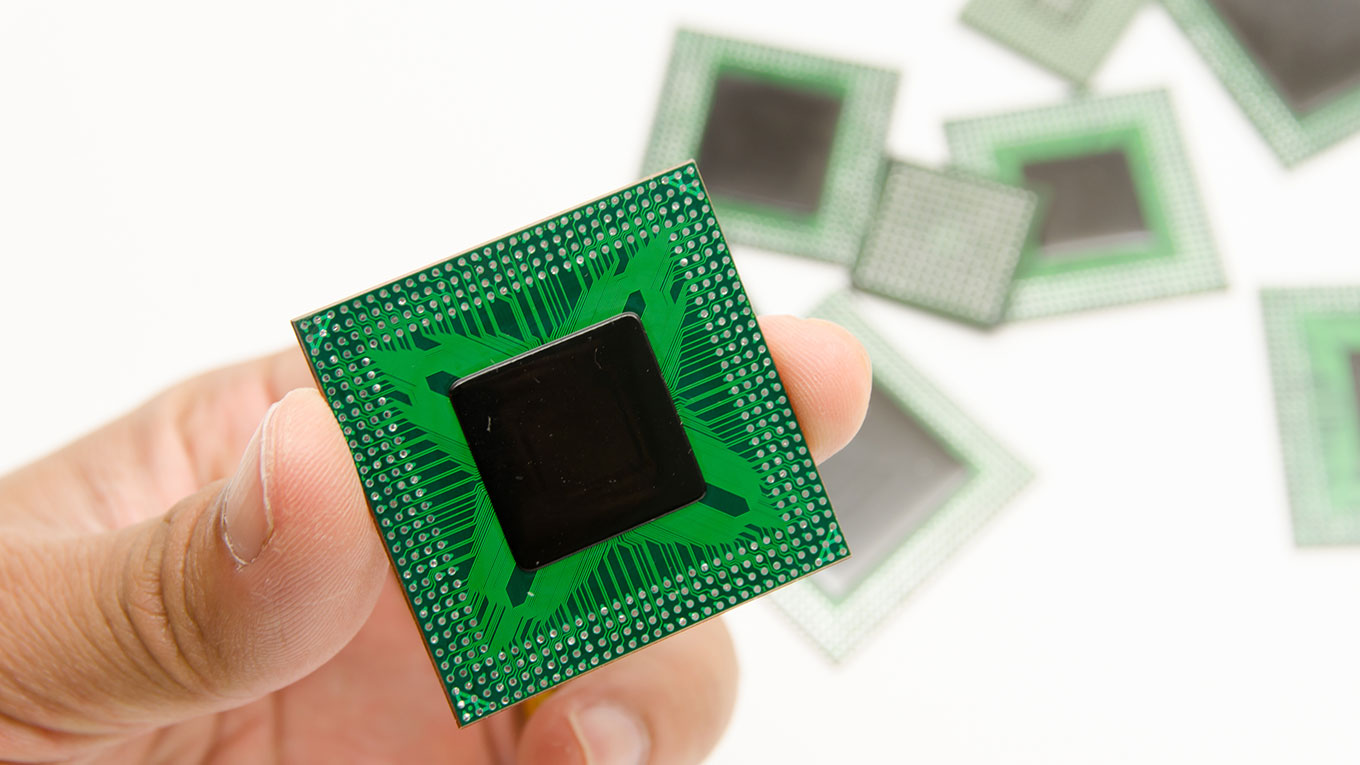 Researchers use machine learning to map a powerful algorithm onto a single, programmable chip. (Photo by iStock)
Researchers use machine learning to map a powerful algorithm onto a single, programmable chip. (Photo by iStock)Researchers put the power of a server farm on a chip
Complex optimization problems — like calculating the most efficient delivery routes, optimally moving goods through supply chains or routing passengers to destinations on-demand — can require power-draining computations that keep server farms running 24/7. But Berkeley engineers have now found an innovative way to dramatically reduce both the energy and hardware requirements for these computations by using machine learning to map a powerful algorithm onto a single, programmable chip.
“If you follow our protocol, you may be able to solve these problems an order of magnitude faster than on an ordinary computer,” said Sayeef Salahuddin, professor of electrical engineering and computer sciences and senior author of a study published in Nature Electronics that describes this work.
While algorithms for solving complex optimization problems do exist, Salahuddin and his team set out to build an algorithm that would require only minimal hardware — in this case, a single, programmable chip. In the study, researchers tested both the efficacy of this algorithm and its viability on hardware. “We wanted to demonstrate how this protocol would work in a future large-scale chip design,” said Salahuddin.
The researchers put their chip to the test against a traditional processor on power-hungry tasks, like factoring 16-bit numbers. The chip beat the processor every time.
“By using our proposed algorithm and hardware combination, we were able to solve larger problems than previous methods while using less power and less time,” said Saavan Patel, lead author of the study and a Ph.D. candidate in Salahuddin’s lab. “This could enable a future where such problems are solved instantaneously, anywhere and in real time.”
By combining machine learning with hardware design, the researchers hope to eventually develop a protocol that will enable small devices to quickly solve optimization problems. “Someday a delivery person might be able to calculate the most efficient distribution route in just a few minutes using a cell phone or a smart watch,” said Salahuddin. “This could help reduce our dependence on power-hungry server farms and, potentially, our carbon footprint.”
Philip Canoza, a Ph.D. candidate in Salahuddin’s lab, is also a co-author of this study.
